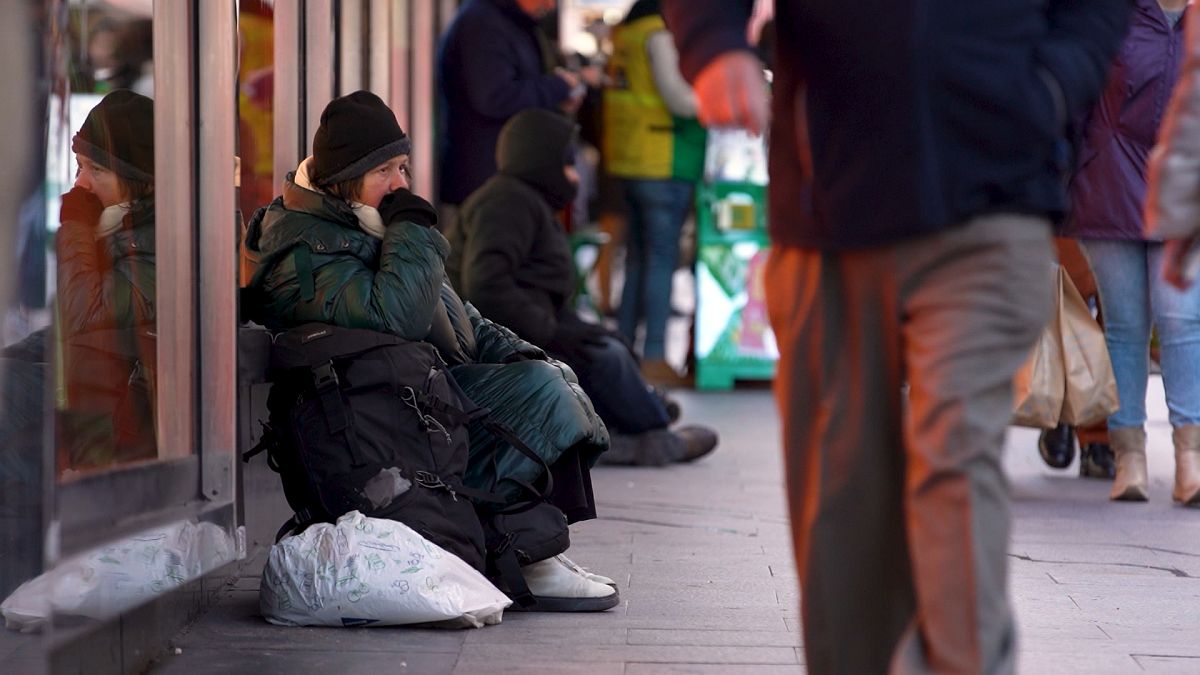First developed in the US, the initiative known as Housing First, is being adopted increasingly in Europe. Unlike traditional approaches, it doesn’t require individuals to meet certain criteria before receiving housing assistance. The idea is that homeless individuals have a higher chance of creating a brighter future for themselves if they first have a roof over their heads.
Carlos Martínez Carrasco lived rough for several years before a Housing First initiative provided him with a flat on the outskirts of Madrid.
He told Real Economy that the flat has changed his life in every way: “I no longer lack the things that you do when you’re on the street and I can cook. I don’t have to find a way to wash clothes… I can go out with the peace of mind that I have a place to come back to. I am very happy today.”



That helps for the homeless who are people that are just down on their luck, but it won’t solve the issue for those who are chronically homeless due to mental illness and/or drugs.
Idk what the statistics are for Europe, but 60-80% of the chronically homeless in the US fall into that category.
Homelessness is a very complex issue, and while it gets better if housing is provided, it won’t solve the issue.
The number of addicted people or people with mental health issues is closer to 30%, it might seem higher to you because you notice those people more.
https://unitedtoendhomelessness.org/blog/myth-most-homeless-people-are-either-mentally-ill-or-have-a-substance-use-disorder/
Things get much better if housing is provided since most people just don’t have a home, so let’s start there.
It depends on which EU country you’re talking about, the ones that provide support for addicts reduce their addicted population, the ones that provide housing reduce their homeless population, the ones that provide mental health services reduce their mentally ill population.
Just like in the US, and everywhere else these programs are implemented.
UBI and comprehensive social support are the obvious solutions to most of these problems, and a historically work, so I take every new properly made social program as a success, especially if they are continued after they prove their worth.
That’s true, but it will give even them an important baseline improvement. You aren’t fixing all their problems but you’re fixing a huge problem that all of them have
The problem is that, in general, housing for the homeless has sobriety requirements. Same with shelters. Many people who are chronically on the streets are there because they won’t or can’t quit, or because they literally can’t operate in society because of their illness, not because there’s a lack of resources available to them.
The two changes that would have the greatest impact would be massively increased funding to mental hospitals and drug rehab centers. That would house the majority of chronically homeless while hopefully helping to fix what caused it to begin with.
I do want to reiterate that I’m not talking about people who are homeless because life got rough for a bit and need a breather to recoup. They would absolutely benefit from being given housing.
But, those people aren’t who are typically being discussed when the topic of homelessness comes up.
Those are good points and my attitude is to generally oppose sobriety requirements or at least create sobriety optional housing as well and to aggressively fund rehabs. It’s a lot easier to decide to get sober and to stick with it when you don’t live outside. I additionally strongly support community based mental health treatment and funding more research into humane and effective treatments for the sorts of psychological issues that can lead to homelessness and addiction. We know some things, but I think it’s not controversial to say we would benefit from more understanding on how to best help people like this.
Mental illness fucking sucks as does addiction. Mental hospitals can be amazing or they can be torturous and so I’m always worried about them but I also understand that they are needed